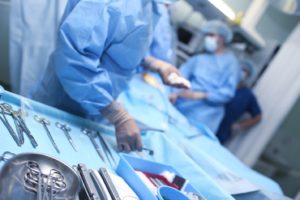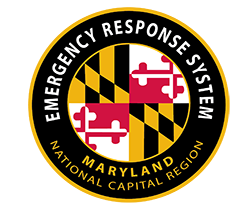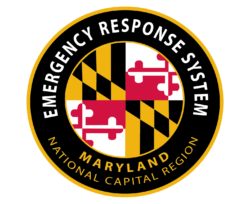In December 2022, the Maryland-National Capital Region Emergency Response System (MDERS) organized a Surgical Skills Lab with Montgomery and Prince George’s County Tactical Emergency Casualty Care (TECC) practitioners. The course provided TECC practitioners with an invaluable opportunity for hands-on training and enhancement of their medical wound and airway management techniques. The skills and information obtained during this course will help TECC practitioners render optimal trauma care and casualty management in civilian threat emergencies.
TECC is a set of medical treatment guidelines for trauma care in a high-threat prehospital environment. The medical lessons learned by the United States and allied military forces over the past 15 years of conflict helped develop TECC guidance for trauma care (Committee for Tactical Emergency Casualty Care, 2023). The TECC guidelines are appropriately modified to meet the needs of civilian EMS practice for medical response and treatment of the injured.
Initially, participants were given a thorough safety brief to obtain situational awareness if any hazards or risks occur while training. Upon working in four small groups, the Surgical Skills Lab provided participants with an opportunity to operate various medical equipment and execute intricate techniques on specimens donated to science and educational projects. This included the use of specialized instruments such as scalpels, forceps, and suture needles, as well as the proper application of suture materials and wound closure techniques. This is an essential skill for healthcare providers, as timely and proper wound management can prevent infection and promote healing.
situational awareness if any hazards or risks occur while training. Upon working in four small groups, the Surgical Skills Lab provided participants with an opportunity to operate various medical equipment and execute intricate techniques on specimens donated to science and educational projects. This included the use of specialized instruments such as scalpels, forceps, and suture needles, as well as the proper application of suture materials and wound closure techniques. This is an essential skill for healthcare providers, as timely and proper wound management can prevent infection and promote healing.
During the surgical skills training, participants learned about advanced airway management techniques, including the insertion of breathing tubes through the trachea (tracheotomy), the mouth (endotracheal intubation), and the nose (nasopharyngeal intubation). At each station, participants practiced these life-saving techniques, which are critical in cases of excess air or blood in the chest and when a patient is unable to breathe. To enhance the knowledge of participants, a physician was available to provide essential guidance and instruction to demonstrate best practices and answer any questions.
As this course was well received by all participants, the following comments were made:
- I personally liked … [gaining] a good understanding of the human anatomy.
- It was great to learn more on small lacerations. We always focus on the big injuries and ignore others. It was [great] to learn how to use sutures, staples, and glue.
- I… learned what some of the expectations are of us as EMT supporting our Paramedics assigned to the team during critical incidents.
- This training boosted my confidence in applying medicine in the field.
The Surgical Skills Lab represents a vital component of medical education and training that equips healthcare providers with the knowledge and lifesaving skills necessary to increase patients’ survival rate. Participants gained immense experience from the course with hands-on training, wounds management, and medical airway procedures and techniques. MDERS aims to regularly work with Montgomery and Prince George’s County TECC practitioners to ensure this capability continues to expand.
References
Committee for Tactical Emergency Casualty. (2023). Frequently Asked Questions. Retrieved from https://www.c-tecc.org/about/faq


